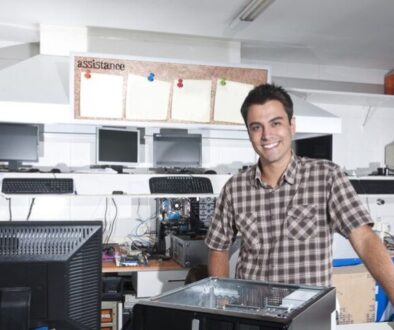Dell Introduces SC5020F with Improved Capabilities
What are you looking for when it comes to a reliable storage solution for your business? If you’re looking for improved performance and reduced storage costs, the new Dell SC5020F is a good bet.
Dell’s EMC new mid-range storage market product launch has the company updating its entire family of SC storage arrays.
Additionally, Dell is offering customers a three-year satisfaction guarantee on their products, so that you can buy with confidence.
Dell has also launched two new all-Flash models along with upgrading its range of hybrid SC arrays. We will explore the new SC5020F which comes with the new SCOS 7.3 software to deliver higher storage capabilities, improved performance and innovative management features.
Hardware
The SC5020F is equipped with a range of features aimed at enhancing productivity and ensuring stability. Here is what you are looking at:
– 3U rack chassis and comes with twin, active/active hot-plug controllers.
– Each controller comes with 64 GB DDR4 cache memory.
– There are octa-core 2.4GHz Xeon E5-2630 v3 CPU.
Users can expand the memory capacity outside the box, supporting up to 30 internal SFF SSDs. They can also take help of SC420F 24-bay SAS3 expansion shelves and increase the drive count to 222 for each array. You can increase the number by using a federated array with up to 10 components.
Both the controllers have mezzanine card slots, PCI-Express and 4 x 10 GBaseT data ports. Customers can choose from 10GbE, 25GbE and 100GbE adaptors and 32Gbps and 8/16Gbps FC features. The SC5020F can be used for read-intensive activities and is compatible with read- and write-intensive SSDs.
The Top Features You’ll Love
The SC5020F is compatible with two storage tiers of read-and-write intensive SSDs, and the system takes help of profiles to manage the storage of data on specific tiers along with management of data progression. The RAID array is created automatically and selected by the SCOS to match each tier with features for dual-mirrored arrays and RAID10, 6, 5, and 0.
A disk folder pool is used to combine physical storage, and virtual volumes are created among them and assigned to specific data ports. Storage profiles determine the data tiering, and the scheduler can be utilized to perform as frequently as every five minutes if required.
Users will also be able to take help of profiles to manage compression and deduplication which is possible wholly or on chosen volumes. Quality of service (QoS) profiles control the available bandwidth on the chosen volumes and can take help of both MB/sec and IOPS values.
SCOS 7.3 Features
The system uses distributed sparing so that waste does not occur on high capacity and high-value SSDs. Distributed sparing takes advantage of SC arrays which perform RAID protection down to the page level. It can utilize the capacity of numerous in-use SSDs and use it as a reserve rebuild space. The system reduces the array rebuild times by five times, providing cost advantage by pushing all SSDs in active service.
Users can replicate between SC arrays using the Live Volume feature, and the SCOS 7.3 can support 500 arrays, increased from 100 arrays. The system uses the same volume ID between arrays so that failover can be seamless. It also provides asymmetric logical access unit (ALAU) support so that MPIO connections can be enabled to the primary Live volume.
The SCOS 7.3 comes with improved management features. It uses the Unisphere for the SC web server. The system also comes with a comprehensively designed HTML5 interface which gives easy access to the local storage features of the array.





